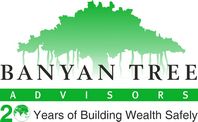Apr 2014: HDFC – a great company at a reasonable price.
In 2014
- Dec 2014:Commodities: a 150 year history
- Nov 2014:Gillette – the best an investor can get!
- Oct 2014:Government gets moving on reforms
- Sep 2014:Small caps aggressively priced, as high quality large caps still reasonable
- Aug 2014:10 years on … A wonderful, continuing journey
- July 2014: High Quality offers a good reward to risk ratio
- Jun 2014: Stay Clear of Broken Balance Sheets
- May 2014: Election 2014 and the Rupee
- Apr 2014: HDFC – a great company at a reasonable price.
- Mar 2014: Markets at new high, but still reasonably priced
- Feb 2014: Promoters increasing stake is welcome
- Jan 2014: HDFC Bank: When the going gets tough
This month we would like to discuss another one of our high conviction investments – HDFC Ltd. HDFC is a housing finance company and is also the holding company for HDFC Bank, HDFC Life Insurance, HDFC Ergo General Insurance and HDFC Asset Management Company.
In the housing finance business, HDFC’s edge is its lending discipline. Its total write-offs on account of non-performing assets since inception are 4 basis points (0.04%) of its total disbursements to date. It is also among the most efficient housing finance companies with an operating cost to total assets at 0.3%. This gives it an edge, to cherry pick its customers and yet make a decent spread on its loans.
HDFC has grown its loan book at a rate of 25% over the last 15 years – growth over the last 7 years has been a tad slower at 22%. Earnings growth over the last 15 years has also been a steady 21% p.a. Our investment philosophy revolves around buying steady businesses with a competitive edge, which have weathered multiple economic cycles and sustained or grown their competitive edge along the way. HDFC fits the bill with its long term track record of delivering sustained growth and maintaining the credit discipline over the years.
An interesting feature of the Indian housing finance market is that the total mortgage debt to GDP in India is very low at 8% as against 30-40% for most countries in South East Asia and 70-80% for the developed world countries like US and UK. This implies low penetration of housing finance as also the conservative nature of Indian households who have preferred not to take on excessive loans on their balance sheet. This conservative nature of HDFC’s borrowers is also evidenced in the repayments (including pre-payments) as a percentage of total loan book which have averaged 20% for HDFC’s mortgage portfolio. Importantly, this number has not changed in any meaningful way over the last 15 years. This implies that although at the time of disbursal, the loan is for 15 or 20 years, the borrower has a healthy enough balance sheet and cash flow to continuously pre-pay his loan and pay off the loan in about 5 years on average.
Lending against a house in India is also inherently safe because a house is also a family’s home and reneging against this loan is considered very disgraceful culturally. Moreover, in India there also happens to be a cash component to most real estate purchases, which gets financed by the borrower directly and therefore the actual home equity is higher than the stated number of 35% (for HDFC) at origination of the loan.
HDFC also owns 22.7% equity in HDFC Bank, 72% in HDFC Life Insurance, 74% in HDFC Ergo General Insurance, 60% in HDFC Mutual Fund and 59% in Gruh Finance. These are all valuable businesses that HDFC has spawned along the way and now contribute significantly to its total value. All in all, this is a great company and our valuation models suggest that the price that one is paying currently is very reasonable considering its growth prospects and stability of the business.
